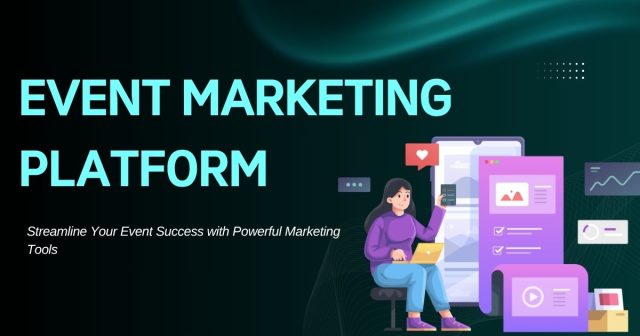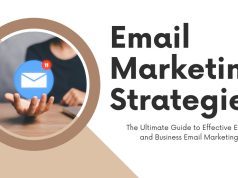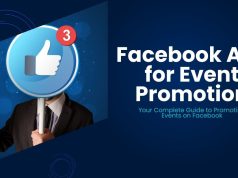An event marketing platform streamlines planning, promotion, and management of events, helping businesses engage audiences and generate leads efficiently. By integrating registration, email, social media, and analytics tools, it simplifies workflows and improves results. Choosing the right platform ensures better attendee experiences, measurable ROI, and long-term event marketing success.
What is an Event Marketing Platform?
An event marketing platform is an integrated software system designed to manage every aspect of event marketing. These platforms combine multiple tools and functionalities into a single dashboard, allowing event organizers to handle registration, promotion, attendee management, and post-event analysis seamlessly.
Unlike traditional event management tools that focus solely on logistics, event marketing platforms emphasize the marketing and promotional aspects of events. They help businesses attract the right attendees, engage them effectively, and measure the success of their events through detailed analytics.
Modern event marketing platforms typically include features like email marketing automation, social media integration, landing page builders, CRM connectivity, and comprehensive reporting tools. This all-in-one approach eliminates the need for multiple software solutions and ensures a cohesive event marketing strategy.
Key Features of Event Marketing Platforms
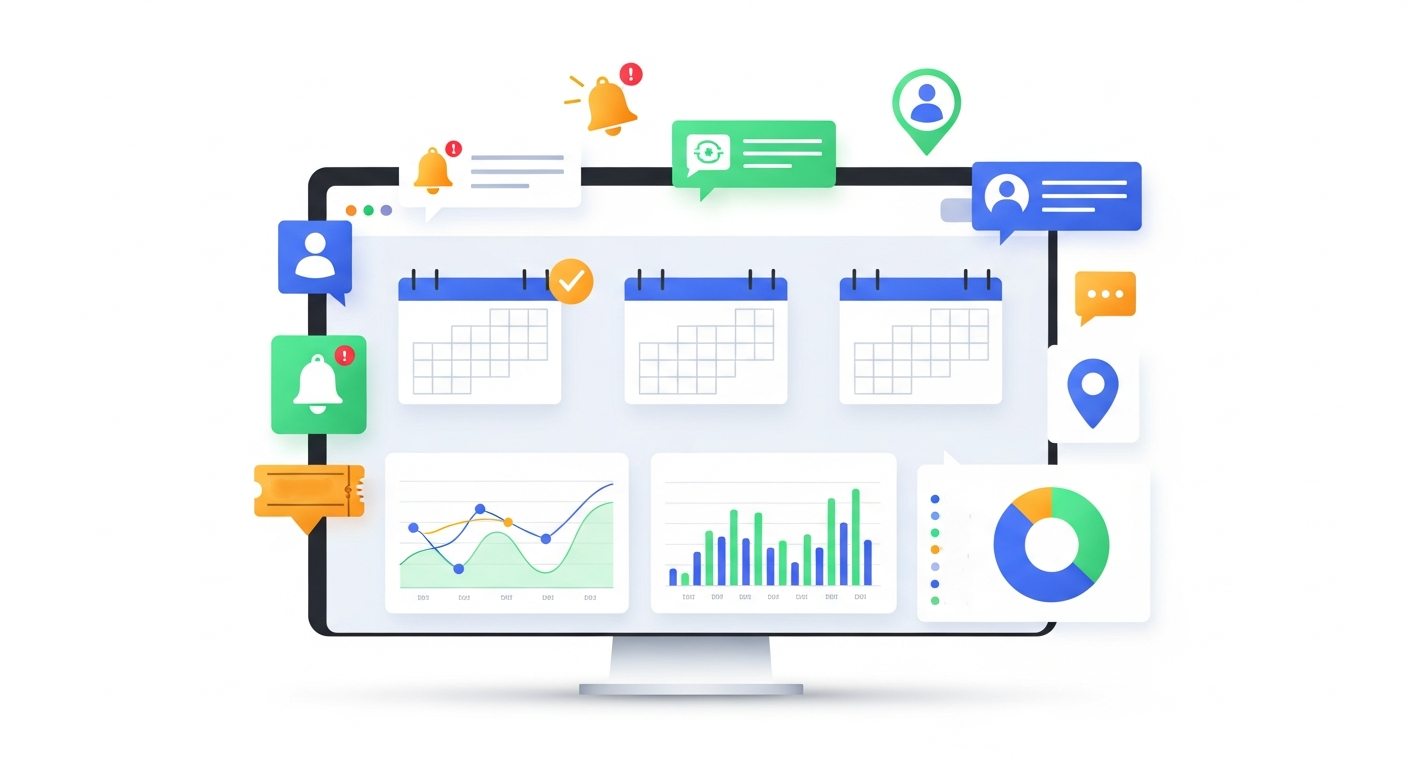
Registration and Ticketing Management
The foundation of any successful event is efficient registration management. A robust event marketing platform should offer customizable registration forms, flexible ticketing options, and secure payment processing. Platforms that allow branded registration pages, early bird pricing, and multiple ticket types are ideal. Learn more about the ultimate guide to choosing an event marketing platform.
Advanced registration features include automated confirmation emails, reminder sequences, and waitlist management. Some platforms also offer mobile-responsive registration forms and integration with popular payment gateways like Stripe or PayPal.
Email Marketing Integration
Email remains one of the most effective channels for event promotion. Your chosen platform should include built-in email marketing tools or seamless integration with popular email service providers. This allows you to create targeted campaigns, send automated follow-ups, and nurture leads before, during, and after your event.
Look for platforms that offer email templates specifically designed for events, A/B testing capabilities, and detailed email performance analytics. The ability to segment your audience based on registration status, ticket type, or engagement level is also crucial for effective email marketing.
Social Media Promotion Tools
Social media plays a vital role in event marketing success. The best event marketing platforms include social media integration features that allow you to promote your event across multiple channels, create shareable content, and track social media engagement.
These tools might include automated social media posting, hashtag management, social media contest features, and the ability to display live social media feeds during virtual or hybrid events. Some platforms also offer social media advertising integration to help you reach a broader audience.
Analytics and Reporting
Data-driven decision-making is essential for event marketing success. Your platform should provide comprehensive analytics and reporting features that help you understand attendee behavior, measure ROI, and identify areas for improvement.
Key metrics to track include registration rates, email open and click-through rates, social media engagement, attendee demographics, and conversion rates. Advanced platforms also offer real-time reporting during events and post-event analysis tools.
CRM and Lead Management
Events are powerful lead generation tools, and your platform should help you capture and manage these leads effectively. Look for platforms that integrate with popular CRM systems like Salesforce, HubSpot, or Pipedrive, allowing you to automatically sync attendee data and track lead progression.
Lead scoring capabilities, automated lead nurturing sequences, and detailed attendee profiles can help you identify the most promising prospects and follow up appropriately.
Types of Event Marketing Platforms
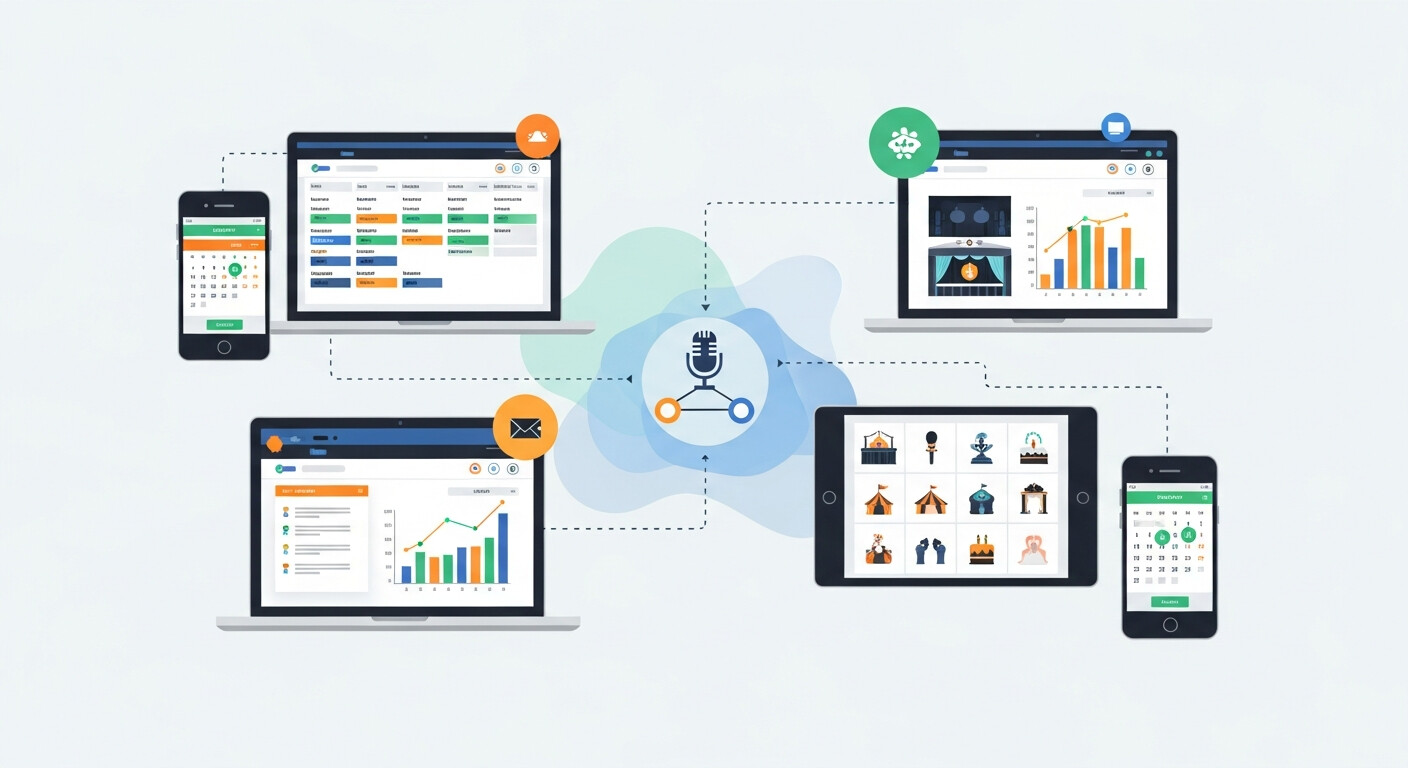
All-in-One Event Management Solutions
These comprehensive platforms handle everything from event planning and promotion to execution and analysis. They’re ideal for businesses that want a single solution to manage their entire event marketing process. Examples include platforms that offer venue management, speaker coordination, agenda building, and attendee networking features alongside marketing tools.
All-in-one solutions are particularly beneficial for large organizations hosting multiple events or complex conferences with various components. However, they may be overkill for businesses with simpler event marketing needs.
Specialized Event Promotion Platforms
These platforms focus specifically on marketing and promoting events rather than managing the entire event lifecycle. They excel at registration management, email marketing, social media promotion, and analytics. They’re perfect for businesses that already have event logistics handled but need better marketing tools.
Specialized platforms often offer more advanced marketing features and integrations compared to all-in-one solutions. They’re typically more cost-effective for businesses primarily focused on event promotion and lead generation.
Virtual and Hybrid Event Platforms
With the rise of remote work and digital events, specialized platforms for virtual and hybrid events have become increasingly popular. These platforms combine traditional event marketing features with virtual event hosting capabilities, including live streaming, interactive features, and virtual networking tools.
Virtual event platforms are essential for businesses looking to reach global audiences, reduce event costs, or offer flexible attendance options. They often include features like virtual booths, breakout rooms, and gamification elements to enhance attendee engagement.
How to Choose the Right Event Marketing Platform

Assess Your Event Marketing Needs
Before evaluating platforms, clearly define your event marketing requirements. Consider the types of events you host, your target audience size, required integrations, and budget constraints. Make a list of must-have features versus nice-to-have capabilities.
Think about your current event marketing challenges and pain points. Are you struggling with registration management, email marketing, lead tracking, or event analytics? Prioritize platforms that address your most pressing needs.
Evaluate Integration Capabilities
Your event marketing platform should integrate seamlessly with your existing marketing and sales tools. Check compatibility with your CRM system, email marketing platform, social media management tools, and analytics software.
Strong integration capabilities ensure data consistency across your marketing stack and prevent silos that can hinder your event marketing effectiveness. Look for platforms that offer pre-built integrations or robust API capabilities for custom connections.
Consider Scalability and Flexibility
Choose a platform that can grow with your business. Consider whether the platform can handle increasing attendee numbers, additional event types, and expanding marketing requirements. Look for flexible pricing models that allow you to scale up or down based on your needs.
Flexibility in customization is also important. Your platform should allow you to brand registration pages, customize email templates, and adapt workflows to match your specific event marketing processes.
Review Pricing and ROI
Event marketing platforms typically offer various pricing models, including per-event pricing, monthly subscriptions, or attendee-based pricing. Consider your event frequency and attendee volume when evaluating costs.
Calculate the potential ROI by considering time savings, increased registrations, better lead quality, and improved event outcomes. A more expensive platform may provide better value if it significantly improves your event marketing results.
Implementation Best Practices
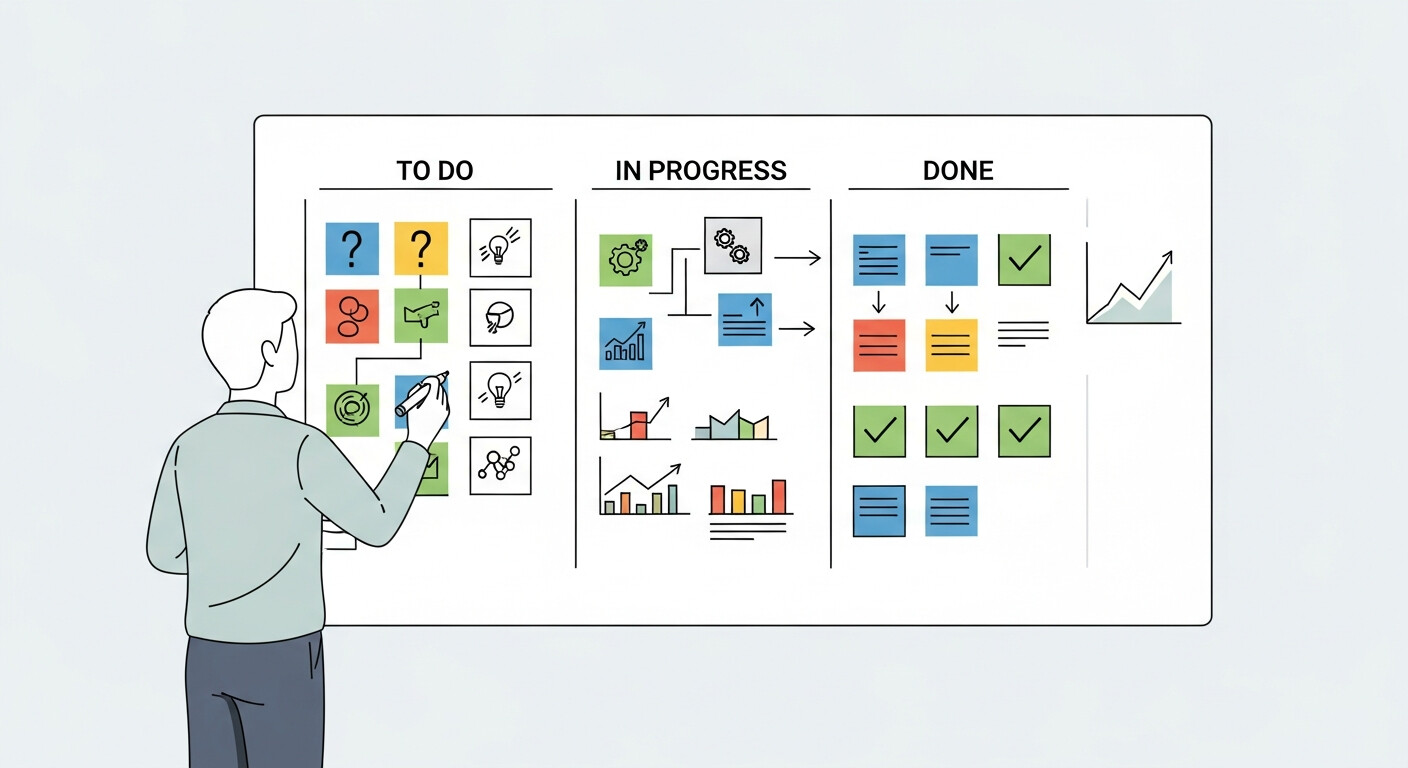
Start with a Pilot Event
When implementing a new event marketing platform, begin with a smaller, less critical event to test the system and train your team. This allows you to identify any issues and optimize your processes before using the platform for major events.
Document your workflows, create templates, and establish best practices during this pilot phase. This preparation will make future events more efficient and successful.
Train Your Team Thoroughly
Ensure all team members who will use the platform receive comprehensive training. Most platforms offer onboarding support, training resources, and customer success programs to help you maximize the platform’s potential.
Create internal documentation and standard operating procedures to ensure consistency across your team. Regular training updates are also important as platforms frequently add new features and capabilities.
Optimize Based on Data
Use your platform’s analytics and reporting features to continuously improve your event marketing performance. Track key metrics, identify trends, and make data-driven decisions about your event marketing strategy.
Regular performance reviews and optimization efforts will help you get the most value from your event marketing platform investment.
Measuring Success with Your Event Marketing Platform
Key Performance Indicators
Establish clear KPIs to measure the success of your event marketing efforts. These might include registration rates, email engagement metrics, social media reach, attendee satisfaction scores, and lead conversion rates.
Your event marketing platform should provide easy access to these metrics and allow you to track performance over time. Regular monitoring helps you identify successful strategies and areas for improvement.
ROI Calculation
Calculate the return on investment for your event marketing platform by comparing the costs of the platform with the value generated through improved event outcomes. Consider factors like increased registrations, higher-quality leads, time savings, and improved efficiency.
Document case studies and success stories to demonstrate the platform’s value to stakeholders and justify continued investment.
Maximizing Your Event Marketing Success
Choosing the right event marketing platform is just the beginning. Success depends on how effectively you use the platform’s features, integrate it with your overall marketing strategy, and continuously optimize your processes.
The best event marketing platforms combine powerful features with ease of use, allowing you to create engaging events that drive real business results. By carefully evaluating your needs, selecting the right platform, and implementing best practices, you can transform your event marketing efforts and achieve your business goals.
Remember that the most effective event marketing platform is one that aligns with your specific needs, integrates well with your existing tools, and provides the features and support necessary to execute successful events. Take the time to research options, request demos, and pilot potential solutions before making your final decision.
Selecting the right event marketing platform is crucial for planning, promoting, and measuring the success of your events. However, choosing a great platform is only part of the equation—keeping your virtual attendees engaged throughout the event is equally important. By combining the right technology with proven audience engagement strategies, you can create memorable virtual experiences that drive results and foster long-term connections.
Frequently Asked Questions (FAQ)
What is an event marketing platform?
An event marketing platform is a software solution that helps businesses plan, promote, manage, and analyze events from start to finish. Unlike traditional event management tools, it emphasizes marketing, engagement, and data-driven insights to attract the right audience and maximize ROI.
Why do businesses need an event marketing platform?
Managing events manually can be time-consuming, error-prone, and inefficient. An event marketing platform streamlines registration, email campaigns, social media promotion, attendee engagement, and analytics, allowing businesses to save time while creating more effective, professional, and impactful events.
Can small businesses benefit from an event marketing platform?
Absolutely. Event marketing platforms are not just for large corporations. Small businesses can use these tools to host webinars, virtual workshops, or local events, allowing them to engage audiences, generate leads, and track results without a large team or budget.
What features should I look for in an event marketing platform?
Key features include registration and ticketing management, email marketing integration, social media promotion, attendee engagement tools, analytics and reporting, CRM integration, and post-event follow-up capabilities. Choosing the right features depends on your event type, audience size, and marketing goals.
How do I measure the success of my events?
Success can be measured using metrics such as registration rates, attendee engagement, social media interactions, lead generation, conversion rates, and overall ROI. Most event marketing platforms provide dashboards and reports to track these metrics in real-time and optimize future events.
What types of events can I host with a marketing platform?
Event marketing platforms support a wide range of events, including webinars, workshops, conferences, trade shows, product launches, networking events, virtual summits, and hybrid events that combine in-person and digital experiences.
What is the difference between an all-in-one and a specialized event marketing platform?
All-in-one platforms manage the entire event lifecycle, from planning to post-event analytics, and are ideal for large or complex events. Specialized platforms focus mainly on marketing, promotion, and lead generation, which is useful for businesses that already have logistics covered.
Can event marketing platforms handle virtual and hybrid events?
Yes. Many modern platforms offer tools for live streaming, virtual booths, breakout sessions, attendee networking, and engagement gamification. They make it easy to reach a global audience while maintaining interactivity and tracking performance.
How can I maximize ROI with an event marketing platform?
To maximize ROI, use the platform’s analytics to monitor attendee behavior, segment and personalize communications, integrate with your CRM and marketing stack, and follow up with leads post-event. Optimizing content, engagement strategies, and workflows ensures the platform delivers measurable business results.

